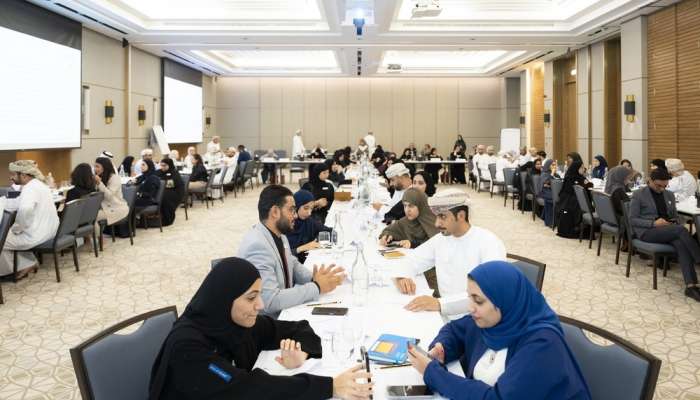Our Terms & Conditions | Our Privacy Policy
Third edition of Youth Ambassadors project 2025 to kick off in October
Muscat: The Ministry of Culture, Sports and Youth has launched the third edition of the “Youth Ambassadors” project for 2025, in collaboration with the Foreign Ministry and the United Nations Institute for Training and Research (UNITAR).
The program will take place in Muscat next October, aiming to enhance youth participation and develop their skills and capabilities in line with the objectives of the Tenth Five-Year Plan concerning youth priorities.
The continuation of the project into its third edition follows the success and engagement achieved in its second edition in 2024.
The programme has met its goals of qualifying 100 young men and women in leadership and diplomacy, strengthening their presence in regional and international forums, and familiarizing them with the foundational principles of the United Nations, its affiliated councils, and their operational mechanisms. This contributes to connecting youth with the global community and international and regional organizations.
Hilal Saif Al Siyabi, Director General of Youth at the Ministry, stated: “The Youth Ambassadors project is one of the initiatives the Ministry is keen to implement annually, given its successes in the 2023 and 2024 editions and the positive engagement we observed from participating youth. This has amplified its impact and highlighted its added value, especially with the growing demand for participation each year. The first edition saw 75 participants, while the second edition increased to 100 participants.”
He noted that this year’s edition targets 120 participants, including 21 seats allocated for Gulf and Arab countries, most of which have given preliminary approval to join the project.
The project encompasses several key themes, most notably meetings between participating youth and diplomatic leaders, as well as training workshops in collaboration with UNITAR. Additionally, it includes a Model United Nations (MUN) simulation session and opportunities for youth to participate in regional and international engagements.
The Model United Nations for Youth is a simulated session mirroring UN discussions, involving 100 young men and women, alongside representatives from government and private institutions, international organizations, academics, and young entrepreneurs.
Participants simulate the workings of the UN and its principal bodies—such as the General Assembly, Security Council, and Economic and Social Council—by assuming the roles of diplomats and official spokespersons for different countries and organizations. They engage in debates and negotiations on key youth-related issues, ultimately drafting resolutions reflecting the agenda topics addressed.
Participants act as ambassadors for assigned countries (as delegation members), delivering speeches that fully represent their designated nation’s stance. They then negotiate with allies and opponents on contentious issues, working toward resolutions that serve the international community. Sessions and discussions are conducted according to UN procedural rules. Through this model, participants research the issues to be addressed by the respective council or committee, gaining insight into how the international community responds to pressing global concerns, including peace and security, human rights, the environment, food and hunger, economic development, and globalization.
The Ministry has set registration criteria for the project, requiring applicants to be Omani youth (male or female) aged 18–29, with a strong desire and commitment to participate fully in the programme and adhere to all related requirements.
Participants must also be in good health, free from chronic illnesses, and cooperative with program organizers, strictly adhering to session schedules. Initial selection and acceptance into the program will be conducted electronically, with priority given to those who have not previously participated in the first edition of the Youth Ambassadors project.
Distribution will be proportional across governorates (based on data from the National Centre for Statistics and Information) and balanced between genders within each governorate.
Applicants must also complete the registration form, including responses to all required questions.
Images are for reference only.Images and contents gathered automatic from google or 3rd party sources.All rights on the images and contents are with their legal original owners.



Comments are closed.